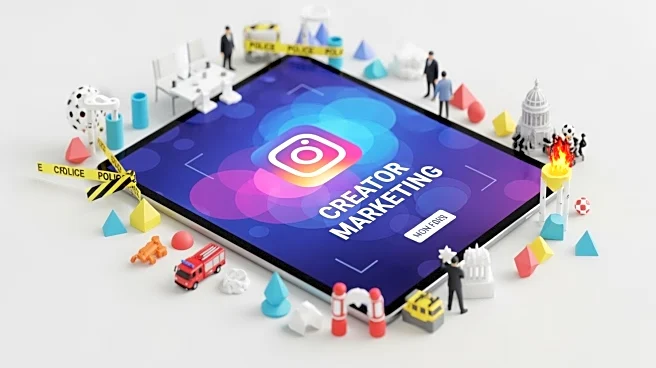What's Happening?
The creator economy, valued at $250 billion in 2023 and projected to reach $480 billion by 2027, is reshaping how brands engage with consumers. This shift has given rise to creator marketing, where businesses
collaborate with digital creators to produce content that aligns with their marketing goals. Unlike traditional advertising, these partnerships leverage the creator's unique voice and audience to build trust and engagement. Creator marketing includes various models such as affiliate partnerships, brand ambassadorships, and creative collaborations, offering brands flexibility in their marketing strategies.
Why It's Important?
Creator marketing represents a significant opportunity for brands to extend their reach and engage with audiences in a more authentic manner. As traditional advertising faces skepticism, particularly among younger demographics, creator marketing offers a way to connect with consumers through trusted voices. This approach is cost-effective, allowing brands to work with creators of varying follower counts and expertise. By leveraging the skills and authenticity of creators, brands can foster genuine connections with niche communities, enhancing brand loyalty and driving sales.
What's Next?
As the creator economy continues to grow, brands are likely to increase their investment in creator marketing strategies. This will involve more sophisticated partnerships and the use of advanced analytics to measure campaign success. Brands will need to carefully select creators who align with their values and target audiences, ensuring that collaborations are mutually beneficial. The evolution of social media platforms and the emergence of new digital tools will also shape the future of creator marketing, offering new opportunities for innovation and engagement.
Beyond the Headlines
The rise of creator marketing highlights a broader cultural shift towards valuing authenticity and expertise over traditional celebrity endorsements. This trend reflects changing consumer preferences, particularly among younger generations who prioritize genuine connections and relatable content. As the industry matures, ethical considerations around content ownership and creator compensation will become increasingly important, prompting brands to establish fair and transparent partnerships.









